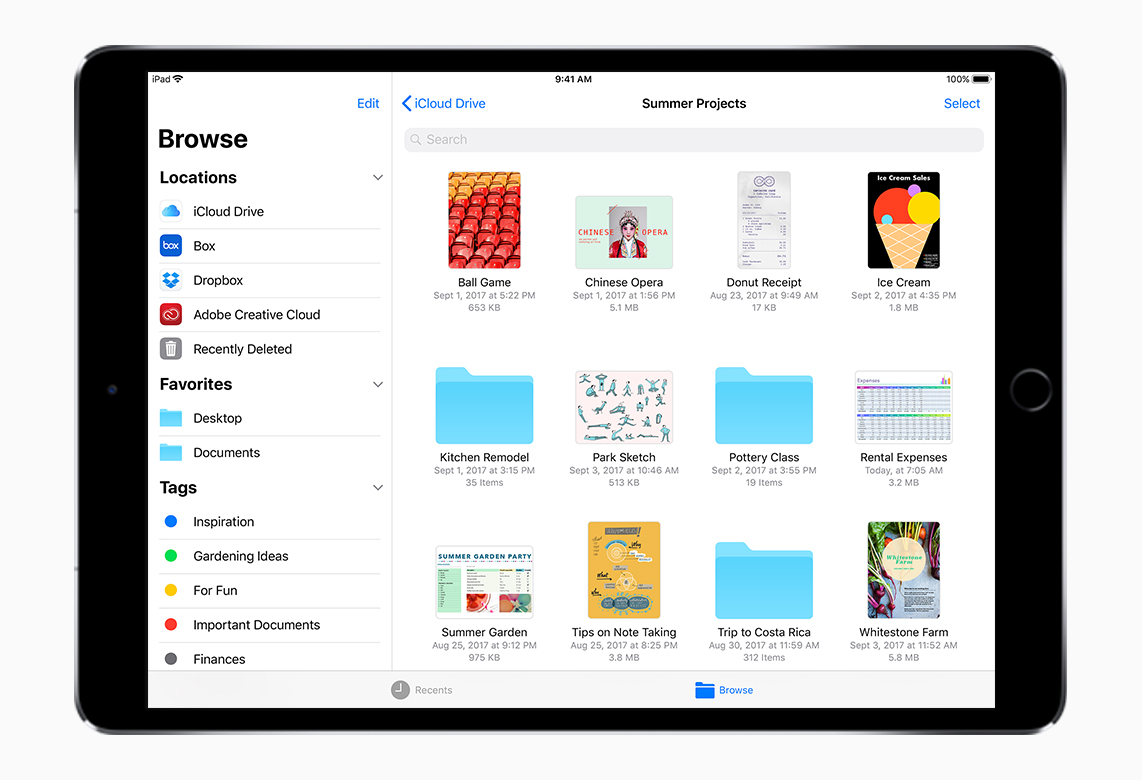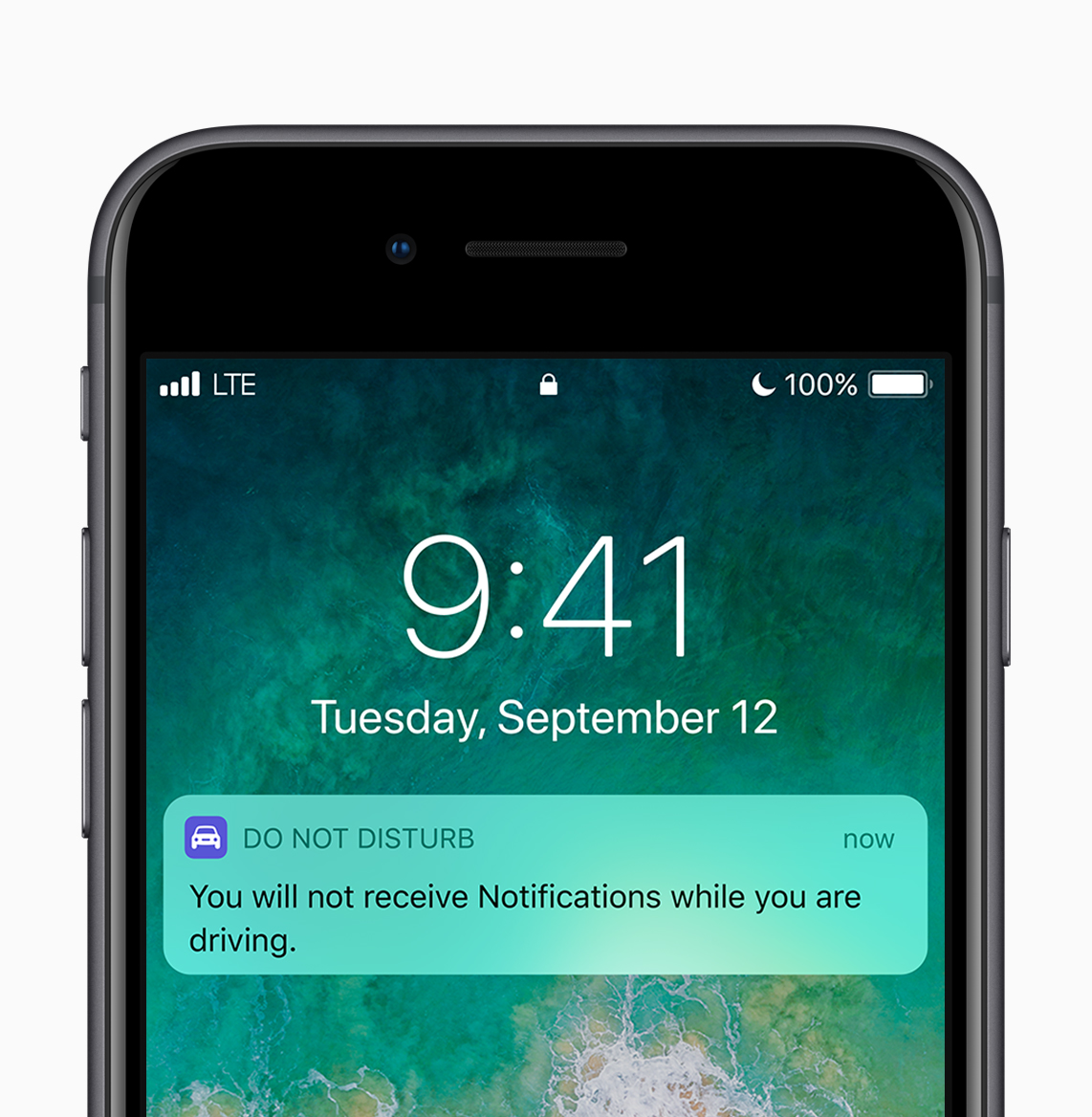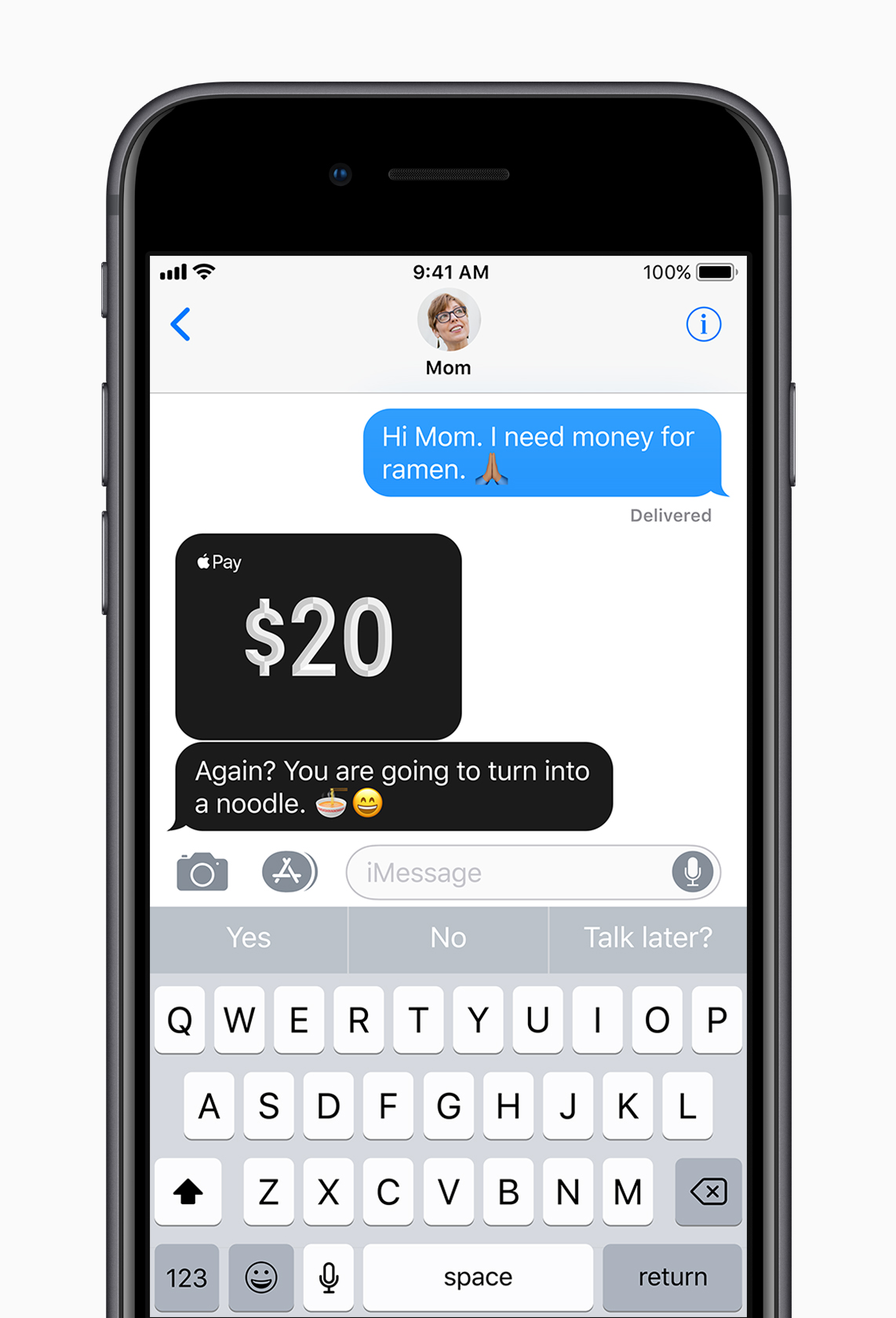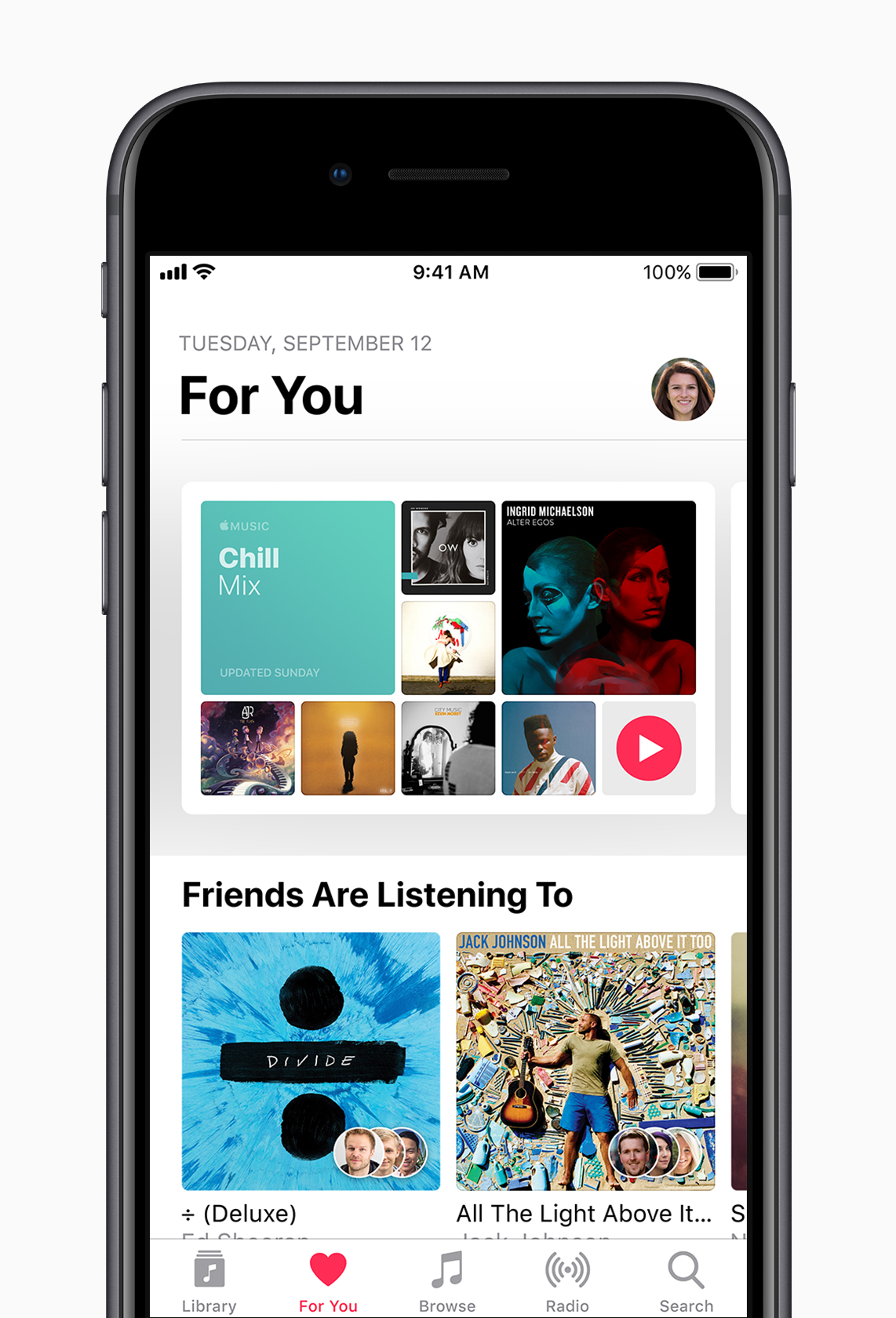The new iOS 11 operating system has been with us for a month now. Three official minor updates have been released since then (the current live version is 11.0.3) and the first major update marked 11.1 has been in preparation for several weeks. User acceptance is relatively lukewarm and satisfaction is certainly not at the level they would imagine at Apple. With the new iOS came new problems, the system as such suffers from a number of shortcomings and there are also things that we were not very used to from Apple - for example, an underdeveloped user interface, very poor battery life and much more. These factors were clearly reflected in the fact that relatively few users installed the new system.
It could be interest you

A month after its release, iOS 11 is on less than 55% of all active devices. It has been the dominant version for a little over a week now, as iOS 10 managed to skip the novelty last week. Even so, the speed of adoption is at a significantly lower level than it was last year with iOS 10.
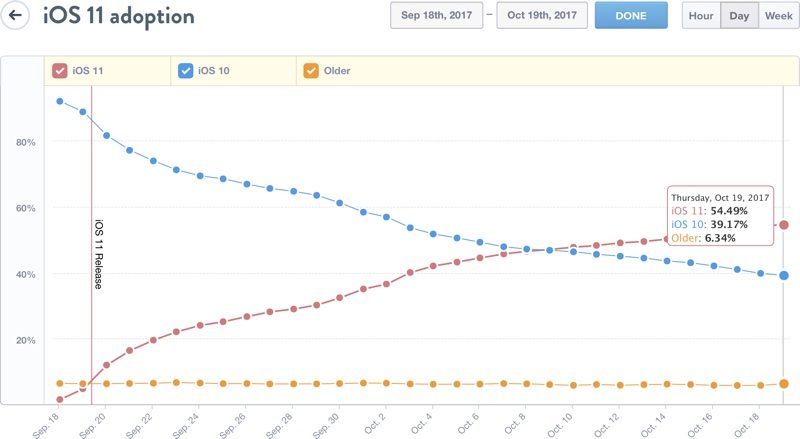
From the first 24 hours after the release, it was clear that the so-called "adoption rate" would be significantly slower than last year. After the first week, the novelty was only on 25% of devices (compared to 34% of iOS 10 during the same period), after the second, iOS 11 was on 38,5% of devices (compared to 48,2% in the case of iOS 10). Data after the first month since the launch claims that eleven managed to reach 54,49% of all active iOS devices. Last year's version was at 66% after a month.
Official iOS 11 Gallery:
Most of the unhappy users are anxiously waiting for the official release of the first major update 11.1, which they expect will fix the most fundamental flaws that are bothering them. Many users are also still purposefully staying on some version of iOS 10 for several possible reasons. One of them could be the fact that once you switch to iOS 11, there's no going back. Another inconvenience may be the end of support for 32-bit applications. Anyway, this year's arrival of a new version of iOS is definitely quite contradictory.
Source: Macrumors
It could be interest you



